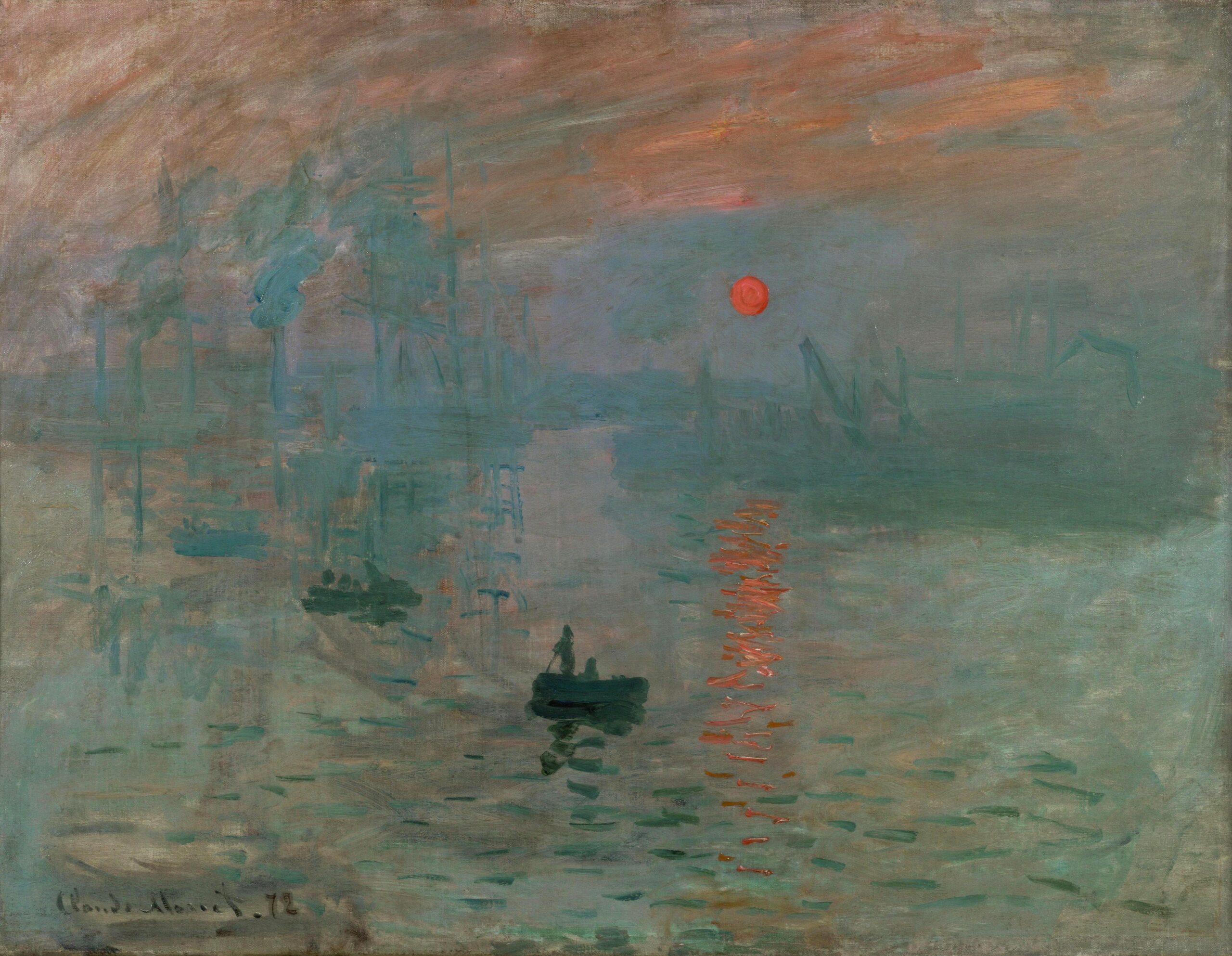I am distressed, almost discouraged, and fatigued to the point of feeling slightly ill. What I am doing is no good, and in spite of your confidence I am very much afraid that my efforts will all lead to nothing.
To know anything about the school of painting called Impressionism, one must know Claude Monet, who gave the movement its name with his painting Impression, Sunrise and provided its method — an almost confrontational relationship with landscape in plein-air. “I have gone back to some things that can’t possibly be done: water, with weeds waving at the bottom,” Monet wrote in a letter to his friend Gustave Geffroy in 1890. “It is a wonderful sight, but it drives one crazy trying to paint it. But that is the kind of thing I am always tackling.”
That “kind of thing,” the compulsion to paint nature in motion, required working quickly, repeating the same experiments over and over, despairing of getting it right, producing in the attempt his glorious series of haystacks and water lilies. Monet began painting landscapes upon meeting artist Eugene Boudin, who taught him to paint in open air, and he never stopped, refining his brushstroke for almost seventy years: from his first canvas, 1858’s View from the banks of the Lezade, to his last, The Rose Bush, finished in 1926, the final year of his life.

Whatever else Impressionism might mean, when it comes to Monet, it entails a prodigious amount of drawing, sketching, and painting. Over 2,500 such works have been attributed to him. That number is probably much higher “as it is known that Monet destroyed a number of his own works and others have surely been lost over time,” notes the Monet Gallery. Around 2,000 of those works are paintings, now spread around the world, with the largest collection located at the Marmottan Monet Museum in Paris, where Impression, Sunrise (above) is held.
While it may be nearly impossible to see all of Monet’s known works in one lifetime (just as it seems impossible that he could have made so many masterpieces in one life), you can see 1540 of them in the video at the top — in a presentation that may or may not suit your art viewing sensibilities. If zooming slowly into hundreds of Monet paintings for a few seconds leaves you feeling a little overwhelmed, you can also head to the Monet Gallery online to see over 1900 of the artist’s attempts at “following Nature,” as he put it, “without being able to grasp her.”
Related Content:
Rare 1915 Film Shows Claude Monet at Work in His Famous Garden at Giverny
Claude Monet at Work in His Famous Garden at Giverny: Rare Film from 1915
How to Paint Water Lilies Like Monet in 14 Minutes
Josh Jones is a writer and musician based in Durham, NC. Follow him at @jdmagness
1540 Monet Paintings in a Two Hour Video is a post from: Open Culture. Follow us on Facebook and Twitter, or get our Daily Email. And don't miss our big collections of Free Online Courses, Free Online Movies, Free eBooks, Free Audio Books, Free Foreign Language Lessons, and MOOCs.
from Open Culture https://ift.tt/3d9qStT
via Ilumina

Comments
Post a Comment